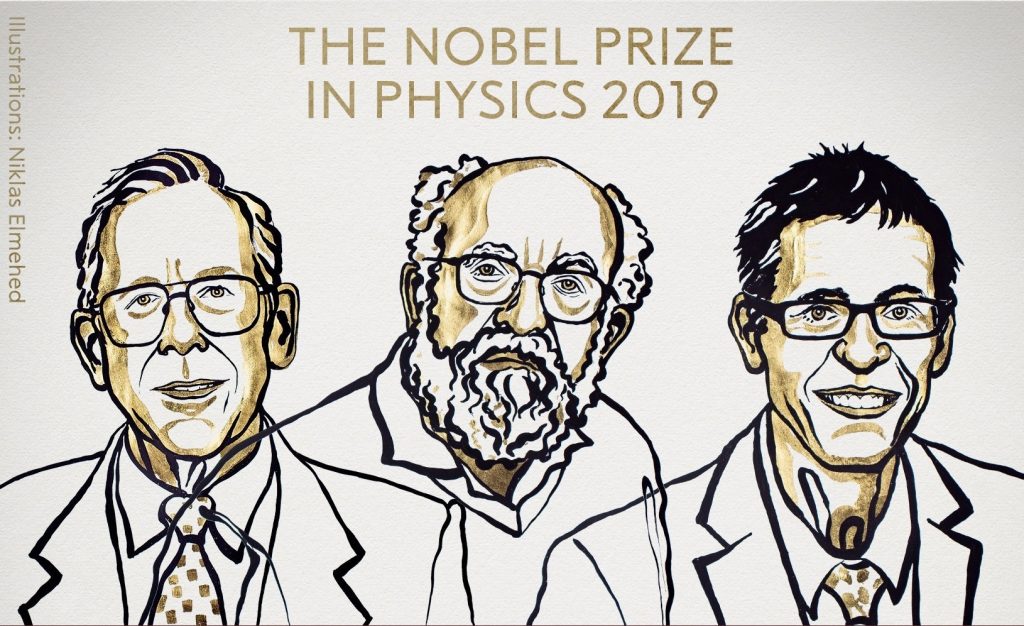2019 Nobel Prize in Physics Awarded Today

The 2019 Nobel Prize in Physics was awarded this morning to three people for two important discoveries that have moved forward our understanding of the cosmos. Half of the award was to James Peebles, a Canadian scientist from Winnipeg, for his contributions to our understanding of the early universe and the other half was awarded to Michel Mayor and Didier Queloz, both Astronomers from Switzerland, for the first discovery of an exoplanet.
“The Nobel Prize in Physics 2019 rewards new understanding of the universe’s structure and history, and the first discovery of a planet orbiting a solar-type star outside our solar system. This year’s Laureates have contributed to answering fundamental questions about our existence. What happened in the early infancy of the universe and what happened next? Could there be other planets out there, orbiting other suns?
James Peebles took on the cosmos, with its billions of galaxies and galaxy clusters. His theoretical frame- work, which he developed over two decades, starting in the mid-1960s, is the foundation of our modern understanding of the universe’s history, from the Big Bang to the present day. Peebles’ discoveries have led to insights about our cosmic surroundings, in which known matter comprises just five per cent of all the matter and energy contained in the universe. The remaining 95 per cent is hidden from us. This is a mystery and a challenge to modern physics.
Michel Mayor and Didier Queloz have explored our home galaxy, the Milky Way, looking for unknown worlds. In 1995, they made the very first discovery of a planet outside our solar system, an exoplanet, orbiting a solar-type star. Their discovery challenged our ideas about these strange worlds and led to a revolution in astronomy. The more than 4,000 known exoplanets are surprising in their richness of forms, as most of these planetary systems look nothing like our own, with the Sun and its planets. These discoveries have led researchers to develop new theories about the physical processes responsible for the birth of planets.”
Read the full popular science story from The Royal Swedish Academy of Sciences here: https://www.nobelprize.org/uploads/2019/10/popular-physicsprize2019.pdf